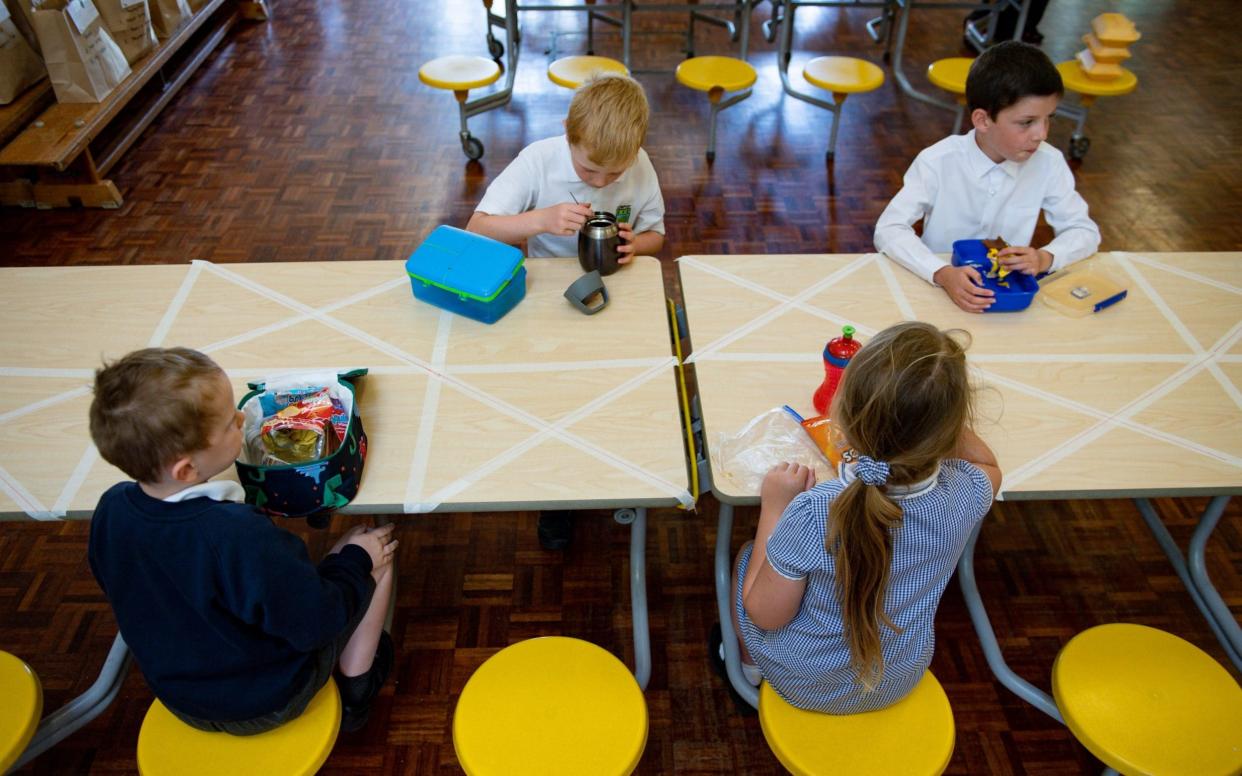Children may suffer 'coronavirus anxiety' when they return to school, warns NHS top doctor

Children may suffer pandemic-induced anxiety as they return to school, the NHS top doctor for young people’s mental health has warned.
Professor Prathiba Chitsabesan urged parents to talk to children about any worries, and seek help for mental health struggles, as growing numbers go back.
Charities said that for some pupils, returning to school could be a “confusing and overwhelming experience” - especially when once-familiar environments have been altered by social distancing measures.
Professor Chitsabesan, NHS England Associate National Clinical Director for Children and Young People’s Mental Health, said: “Children and young people may be experiencing a variety of feelings in response to the coronavirus pandemic, including anxiety, distress and low mood, and it is important to understand that these are normal responses to an abnormal situation.”
She said that while the return to school may cause distress for some pupils heading back to the classroom after months away, it could also upset those who want to go back, but remain stuck at home.
Parents are being asked to look out for signs that children are more upset, find it hard to manage their emotions, appear anxious or distressed or struggle sleeping or eating.
The new advice from NHS England also warns that younger children may be more likely to wet the bed, while those from all age groups may seem withdrawn, tearful, or report negative thoughts about the future.
She said that while lockdown may have increased pressure on parents and children, who may have missed their friends, the adjustment may also be hard.
Stressing that NHS mental health services remain available for young people, she urged parents to take “simple steps” to help children struggling to deal with loneliness, uncertainty and fear.
Health chiefs have urged parents to make time to discuss such feelings, and to attempt to set a routine for the next few weeks, including positive activities children enjoy.
Claire Murdoch, NHS England National Mental Health Director said: “We know that children and young people’s lives have been disrupted during these uncertain times, and some may be suffering from anxiety as schools reopen.
“The NHS is open for business as usual and has adapted to the coronavirus crisis through offering flexible options including phone and video consultations and online support.”
Nadine Dorries, Minister for Mental Health, said: “As many children start to return to school, it’s vital we continue to give them the support they need to maintain their mental health and wellbeing and deal with any feelings of uncertainty or worry they may be experiencing.
“The NHS remains there for those who need it and our mental health services are adapting to best support families and children as we all get used to these changes in routine.”
“I urge any families and children in need of guidance and advice or crisis support to contact their GP or visit the NHS website.”
Tom Madders, campaigns director at YoungMinds said:"School can provide routine, structure and a chance for children to connect and learn, which can all be positive for mental health - but for some children, returning will be a confusing and overwhelming experience, especially if the environment feels different to how it was before.
“Some children who aren't yet returning to school may also be struggling with social isolation or uncertainty about what the future holds.
"If you're worried about how your child is coping, trust your instinct and reach out for help. The YoungMinds Parents Helpline can provide advice and support to any parent or carer who's concerned about their child's mental health, and you can also talk to your GP, your child's school or NHS mental health services."

